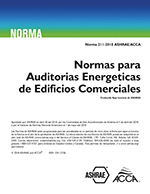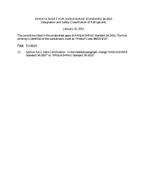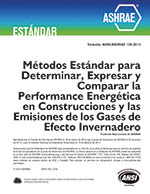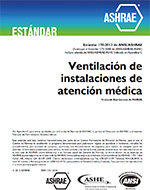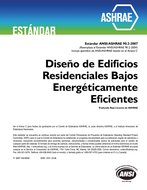Description
Indoor air quality (IAQ) plays an intrinsic role in occupant comfort, and should be evaluated as a key building performance indicator of early design phases. However, IAQ is very complex due to a plethora of chemical compounds in the indoor air and also depends on the activities in the building. Therefore, IAQ assessment is often not comprehensively considered, or applied only during late project phases. This study reviewed how Building Information Modeling (BIM) could be applied for IAQ performance analysis, to provide a more holistic design process. Accordingly, the integrability of Indoor Aerosol Modeling (IAM) into the open BIM data format Industry Foundation Classes was analyzed. The goal was to enable automated BIM-integrated IAM based on particle concentrations in Germany’s outdoor air. For this IAM, a Material Balance Model was chosen which is based on the principle of mass conversation and applies to a single zone. The analysis showed that eight Exchange Requirements (ERs), two Property Sets (Psets) and two Quantity Sets (Qsets) are required for the presented BIM-integrated IAM of naturally ventilated single-zone buildings, which form the basis for an Information Delivery Manual, a Model View Definition and a BIM application case. One of the two required Psets (“Pfd_IndoorAerosolModeling”) was redefined as part of this study, since the associated attributes for an IAM have not yet been standardized. Finally, the developed BIM-integrated IAM was validated on an example building located in Cologne-Mülheim Germany, where a constant PM10 outdoor concentration of CO = 61.00 μg/m³ were assumed. Based on this, it was possible to automatically calculate the occurring indoor concentrations and the time histories of the airborne particle mass concentrations over a selected period of seven minutes (t = 420s) for the fractions PM10 (Cm,PM10(t) = 1.72 μg/m³), PM2.5 (Cm,PM2.5(t) = 1.40 μg/m³), thoracic (Cm,thoracic(t) = 1.66 μg/m³) and high risk respirable (Cm,hrr(t) = 1.31 μg/m³).
Product Details
- Published:
- 2021
- Number of Pages:
- 8
- File Size:
- 1 file
- Product Code(s):
- D-IAQ2020-C05
- Note:
- This product is unavailable in Russia, Belarus

